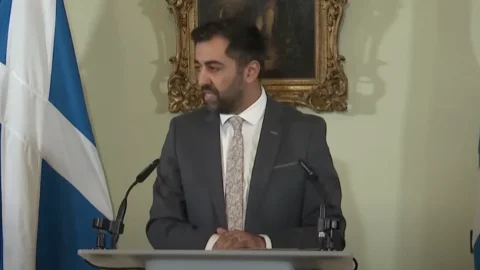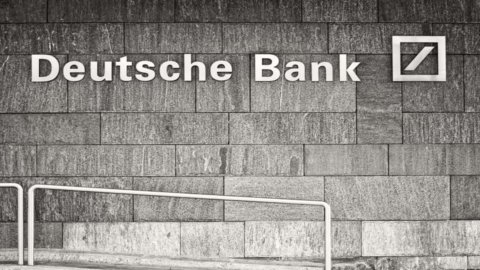“The French have lost their minds: after all, this conclusion can only be reached when one reads, in international rankings, that France considers itself more unhappy than Zimbabwe”. The editorial of Les Echos says a lot about how France presents itself, further shaken by thebombing on the Champs Elysées on Thursday evening, at a key electoral appointment for its future and for that of Europe. In the wake of Trump and Brexit, there are those who fear the worst, but one of the main French newspapers increases the dose: "If the United Kingdom has Farage and the United States Trump, France is the only Western country to have two of Trump's, one on the far right and one on the far left”. Any reference to Marine Le Pen and Jean-Luc Mélenchon, the two most anti-system candidates in a scenario that already sees seven out of eleven candidates "competing demagoguery and incoherence", is not accidental.
And according to the latest polls published before the vote, it cannot even be ruled out a priori (although it is unlikely) that it will be the two of them who will challenge each other in the runoff on May 7: the four main candidates, including the republican François Fillon and the progressive liberal Emmanuel Macron (the only candidate who strongly believes in a future for Paris in the Union), are in fact all candidates, around 20% of preferences each. Slightly above that quota are Macron and Le Pen (according to someone further reinforced by the events in Paris), who should therefore be the two favorites on the eve, but the gap in the polls is too narrow to give even the slightest certainty. “In the country of Descartes, citizens will end up voting at random”, insists Les Echos, which sees in the five 20% blocks (the four main candidates and the block of the others) the signal of a final result that could even be random, dictated by the mood of the moment and luck.
What is certain is that not only France but the whole of France is playing a lot in this round Europe, destined to die if Brexit were blatantly followed by Frexit, as they have not failed to underline the 25 Nobel prize-winning economists they have signed an appeal in Le Monde against Marine Le Pen and the instrumental use she is making of their economic theories for the purposes of the electoral campaign. Indeed, among the signatories there is also Joseph Stiglitz, a well-known Eurosceptic who however warns: “At a time when Europe and the world are facing unprecedented trials, more solidarity is needed, not less. The problems are too serious to be left to divisive politicians." “There is a big difference – continues the document with reference to the possibility, which Le Pen would like to make a reality through a referendum, of France leaving not only the EU but also the single currency – between choosing not to participate in the in the first instance and get out of it after adopting it”.
It goes without saying that the international community is hoping for a victory for Macron, former Economy Minister with Hollande and now leader of an independent movement "that wants to take the best of the left, right and centre". An ambitious project, which seems to be the only possible counterpart to the populist enthusiasm, fueled by the economic crisis and terrorism, which has already triumphed in the last year between the UK and the USA. Then triumphed up to a certain point, given that the victories of the Brexit referendum and of Trump were very narrow (indeed, most US citizens ultimately voted for Hillary Clinton), but what matters - and what worries - is the final result. A very uncertain result and which however it goes will be sensational: France, a country historically marked by political bipolarity, had never presented such a heterogeneous starting grid and made up for three quarters of non-traditional parties or movements (or in any case never been in government). Indeed, in the lot of four, there is – according to polls – not even room for Benoit Hamon, candidate of the Socialist Party, who has just governed the country for five years.
Here are the main points of the programs of the four main candidates:
– MACRON
If it is true that anti-Europeanism is the leitmotif of the French campaign, the only candidate who is expressly pro-European, Hollande's ex-minister of the economy, leads the polls, albeit by a hair's breadth. Macron, who according to projections he would win against anyone once he reached the ballot (as opposed to Le Pen who is a loser in all combinations), is the rising star of French politics. Not yet 40 years old, he managed to occupy a large electoral space left free from the extremisms that are so fashionable: even after the experience with the Hollande government, judged disastrous by most of the citizenry, he was able to reinvent himself as a centrist, or rather liberal-progressive. The French like his balance, perhaps precisely because of the four candidates he is the one who would change the least things, especially on the international front.
Macron he wants France to remain firmly in Europe, which complies with the 3% deficit/GDP stability pact, is also in favor of the Atlantic trade treaties with the USA and Canada (the only one among the 11 candidates) and still strongly believes in NATO, indeed he would leave it as it is, opposing new entries. The former banker of the Rothschilds would also like to maintain Schengen, the ius soli, the current law on religious symbols (banned in schools since 2004, the veil banned in public places since 2010), the current and much discussed Loi Travail (the Jobs Act French, which all the other 10 candidates would like to see again). Even on pensions Macron is conservative (he is the only one who would leave them exactly as they are), while the big news of his program are mainly three: reduction of the tax wedge for companies, but above all enormous cuts in public spending (in particular through the suppression of 120 jobs) and the abolition of the property tax for 80% of those who pay it.
– MELENCHON
Born in Morocco to French-Algerian parents and defined by Le Figaro as "the French Chavez", would like to tax income exceeding 100 euros per year (400 euros per month) at 33%, or in fact would like to put a ceiling on earnings and add tax steps (get to 14 from the current 5) so that those who declare the maximum income, i.e. 33 euros a month, pay 90% of taxes. The leader of "La France insoumise", with a degree in philosophy, also wants to tax French people residing abroad: in the case of sportsmen, he has also said that otherwise they will no longer wear the shirts of the transalpine national teams. In his package there is also the increase in the minimum wage (SMIC) from the current 1.150 euros net to 1.300, and the abolition of the Senate. However, from the very latest polls it seems that the far-left candidate, surprising in overcoming the official candidate of the Socialist Party Benoit Hamon in consensus, is the one least credited for reaching the second round.
– THE PENS
The leader of the Front National, hugely favored at the start of the electoral campaign, she was definitely sucked into the tussle, but it's still hard to think she won't at least reach the ballot, also in the wake of the latest terrorist attacks in Paris. Le Pen proposes a markedly populist and anti-European programme: he wants to lower – like Mélenchon – the retirement age to 60 (from the current 62), reserve social policies (the solidarity contribution for the poorest, the disabled, and the assignment of social housing) to French citizens only, abolish the ius soli and tighten up border controls and the granting of the right to asylum, abolish Schengen and the PAC (common agricultural policies) to return to a national agricultural policy. But above all, the daughter of art (her father Jean-Marie, now almost 90 years old, reached a historic ballot in 2002, then losing to Chirac with a paltry 17% in the second round) hopes for a return to the franc and if elected will propose a referendum for the exit from the European Union.
– FILLON
Lastly, in the leading group is François Fillon, former prime minister during Sarkozy's presidency e under fire for months now for the legal proceedings relating to the fictitious assignments assigned to his wife and children: the Penelopegate however is not preventing the Gaullist candidate from staying in the game. Fillon is moderately pro-European but above all the more liberal candidate, the one proposing the most drastic changes on the labor front and social policies in favor of a reduction in public spending: starting from the cut of half a million public officials up to the raising of the retirement age at 65.
Among the eligible candidates Fillon for example, he is the only one who would like to increase VAT, abolish the solidarity tax on large fortunes (a tax that concerns 340 taxpayers with incomes exceeding 1,3 million, and which yields 5,2 billion a year to the state coffers), and even to make the already highly criticized Loi Travail even more favorable to employers. The Republican candidate also suggests saying goodbye to the historic 35-hour law, the lowest weekly working time in Europe and which Mélenchon would even like to reduce to 32: Fillon suggests leaving it to agreements between the worker and the company.





